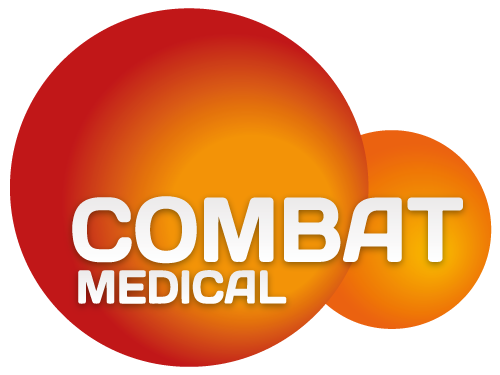World Cancer Day, observed on 4th Feb each year, is a global initiative aimed at raising awareness about cancer, promoting early detection, and encouraging collaborative efforts to combat the disease. The theme for World Cancer Day 2025-2027 is “United by Unique”. This is a reminder to all of us who work towards relieving the global cancer burden that at the heart of each statistic is a unique human story, of grief, pain, healing, resilience and love. And that by working together we can make a real difference to each patient, by putting them at the centre of care.
As medical advancements continue to evolve, innovative treatments such as HIVEC® intravesical chemo-hyperthermic treatment are emerging as promising alternatives to conventional cancer therapies. And as far as colorectal cancer is concerned, alarming trends and predictions for increased incidence and mortality by 2040, reveal the urgent need for better prevention strategies, including spreading awareness of dietary factors.
About World Cancer Day
World Cancer Day, led by the Union for International Cancer Control (UICC), aims to:
Raise global awareness about cancer prevention, early detection, and treatment options.
Promote equality in cancer care by ensuring all patients, regardless of their location or socioeconomic status, receive proper treatment.
Encourage government and policy changes to improve healthcare systems.
Support cancer research to develop innovative treatments that improve survival rates and quality of life.
With the theme of “United by Unique” we can remember to recognise each patient’s personal battle, and work together to provide better patient-centred care and more effective cancer treatment approaches.
Combat’s Innovative Bladder Cancer Treatment: HIVEC® Intravesical Chemo-Hyperthermia
One of the reasons we are so passionate about our HIVEC® intravesical chemo-hyperthermic treatment is that it can give high-risk, BCG-unresponsive non-muscle-invasive bladder-cancer patients a safe, effective alternative to radical cystectomy (RC).
RC involves the removal of not just the bladder but often many other tissues and organs, including parts of the bowel, the prostate gland and seminal vesicles in male patients, and the womb and fallopian tubes in female patients. Many patients are simply not fit enough for such major surgery, while others refuse it on quality of life grounds.
Prospective and retrospective studies already show that HIVEC® with mitomycin C is an effective, safe, well-tolerated and highly cost-effective alternative to RC.
We believe that our new HIVEC®-HEAT phase 3 trial being conducted in multiple centres in the UK over the next 2 years will show HIVEC® to be a game-changer for these patients.
What is HIVEC?
HIVEC therapy involves delivering mitomycin C (MMC) directly into the bladder at an elevated temperature, which enhances drug penetration and effectiveness. This can reduce cancer recurrence rates while being well-tolerated by patients.
Severalprospective and retrospective studies have already demonstrated HIVEC®’s safety, efficacy, and cost-effectiveness.
Now, Onto Colorectal Cancer…
Colorectal cancer (CRC) is the third most common cancer worldwide, with over 1.9 million cases diagnosed in 2020. Despite medical advancements, its mortality rates remain high. Here are some interesting numbers:
Global Colorectal Cancer Statistics (2020)
- 1.9 million new cases diagnosed
- 930,000 deaths worldwide
- Highest incidence in Australia, New Zealand, and Europe (40.6 per 100,000 males)
- Lowest incidence in Africa and Southern Asia (4.4 per 100,000 females)
- Highest mortality rates in Eastern Europe (20.2 per 100,000 males)
- Lowest mortality rates in Southern Asia (2.5 per 100,000 females)
Projected Colorectal Cancer Burden by 2040
According to GLOBOCAN 2023 and global demographic projections:
- New cases are expected to increase to 3.2 million annually.
- Deaths will rise to 1.6 million per year.
- The highest incidence will continue in high Human Development Index (HDI) countries.
Colorectal Cancer and the Dreadful Western Diet
Recent research published in Gut* (covered in some of my December posts) has found a strong correlation between colorectal cancer risk and the typical Western diet (no surprises there), which is high in:
Ultra-processed foods (UPFs)
Inflammatory seed oils (vegetable oils)
Refined sugars and red meats
Since diet is a modifiable risk factor, we need to continue to spread the word that healthy eating habits are key to reducing the risk of colorectal cancer, and indeed many other cancers.
*Soundararajan R et al. Integration of lipidomics with targeted, single cell, and spatial transcriptomics defines an unresolved pro-inflammatory state in colon cancer. Gut Published Online First: 10 December 2024.
https://gut.bmj.com/content/early/2024/12/20/gutjnl-2024-332535
How to Reduce Colorectal Cancer Risk Through Diet?
These are the generally recognised recommendations that we have all heard so many times before:
Increase fibre intake: Eat more fruits, vegetables, and whole grains.
Reduce processed food consumption: Limit fast food, sugary drinks, and packaged snacks.
Choose healthy fats: Use olive oil instead of vegetable oils.
Incorporate probiotics: Fermented foods like yoghurt and kimchi support gut health.
Limit red and processed meats: Choose lean proteins like fish and poultry instead.
The Future of Cancer Treatment and Prevention
As cancer research advances, new breakthroughs in early detection, treatment, and prevention continue to offer hope for millions worldwide. These include:
Personalised medicine: Tailored treatments based on genetic profiles.
Immunotherapy innovations: Boosting the body’s immune system to fight cancer.
Artificial intelligence (AI) in diagnostics: Early cancer detection through AI-powered imaging.
Lifestyle-based prevention: Emphasising the role of nutrition, exercise, and environmental factors in reducing cancer risk. Prevention is, after all, always better than cure.
In Conclusion
World Cancer Day 2025’s theme, “United by Unique,” reminds us that behind every cancer statistic is a human story – a battle against disease filled with resilience and hope. We are excited and hopeful for the future, that with advancements like HIVEC® therapy, we can offer more effective solutions for bladder cancer treatment, as an alternative to radical surgery. Meanwhile, rising colorectal cancer rates demand increased awareness, particularly regarding the role of diet and lifestyle in prevention.
We can all take responsibility for our own health by staying informed, making healthier choices, and supporting ongoing research – while we work towards reducing the global burden of cancer and ensuring that every patient receives the best possible care.

